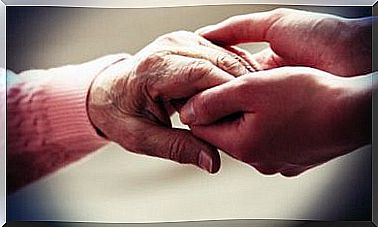Why Is Understanding Others So Important?

The human being is the only individual capable of making the effort to understand individuals of his own species. Understanding others is a task that facilitates socialization processes, improving individuals’ chances of survival in different contexts through mutual help.
As social beings, understanding others opens up the possibility of viewing situations from different perspectives. In this sense, it favors the processes involved in empathy and in the value system as a human being. However, just because understanding others is an extraordinary skill does not mean that it is a simple goal.
The social behavior of human beings
Understanding others is an act influenced by several factors. Aspects such as mood, emotions, fatigue, illness, etc., influence how an individual is willing to do favors or provide help. That is, if a person is in a good mood, they will be more willing to do favors or understand others. Otherwise, if this same person is angry, efforts to understand others can be more difficult.
There are times when, depending on the other person’s expressions, looks and gestures, it is possible to easily recognize their emotional state. However, there are times when dealing with these nonverbal cues is quite difficult, so the only solution left is to ask the individual what’s wrong with him. This second strategy often fails, as the person often wants to hide inner feelings or wants to cover up or lie about their emotional states.

Empathy within the processes of understanding others
Empathy plays an essential role in trying to understand the other. Taking the reins of someone else’s experience to get to know their point of view and the moods generated as a result opens the door to understanding.
Understanding others implies the task of experiencing the emotions of others, at the same time experiencing one’s own emotions, remembering similar experiences we have already gone through, and at the same time recognizing the differences between one point of view and another. The secret of this process is active listening and not immediate reaction, for a correct communication of individual differences.
Why understand others?
It is known that human beings survived and evolved through the skills of some of their individuals in group coexistence. That is, socialization facilitated human survival through learning and acquiring skills taught by others.
Understanding others was one of the key factors in developing basic skills. This allows you to know when it is necessary to interact and put into practice the mechanisms involved in the safety of your own life and that of others. Furthermore, being ignored and misunderstood by the rest of a group to which one belongs has great emotional and psychological consequences.

Failures when trying to understand others
People’s tendencies or intentions can vary, regardless of their repertoire of behaviors, to give visibility to a mood or emotion that may be appropriate to the circumstances. For example, if you’re at an airport where your gate is an hour away from where you are, and you need to run and bump into people to get there on time… does that mean you’re impatient and disrespectful?
What happens is that some keys “turn” due to the environment. Therefore, understanding others is not a simple task to achieve.
On the other hand, the opinion of others about certain circumstances also influences the understanding of certain situations and moods of the other person. That is, the reaction of others can influence the ability to understand an individual.
Therefore, understanding others is one of the essential tasks for the survival of human beings and their comfort. On the other hand, it is very difficult to transcend the self and put yourself in the other’s shoes if we are not skilled at identifying our emotions and the variables that condition them.
Also, certain specific opinions and scenarios can dilute objectivity by putting yourself in someone else’s shoes. This is where empathy can show its dark side. Inevitably, as individuals integrated into a community and a group, value judgments are, at times, practically unavoidable.









